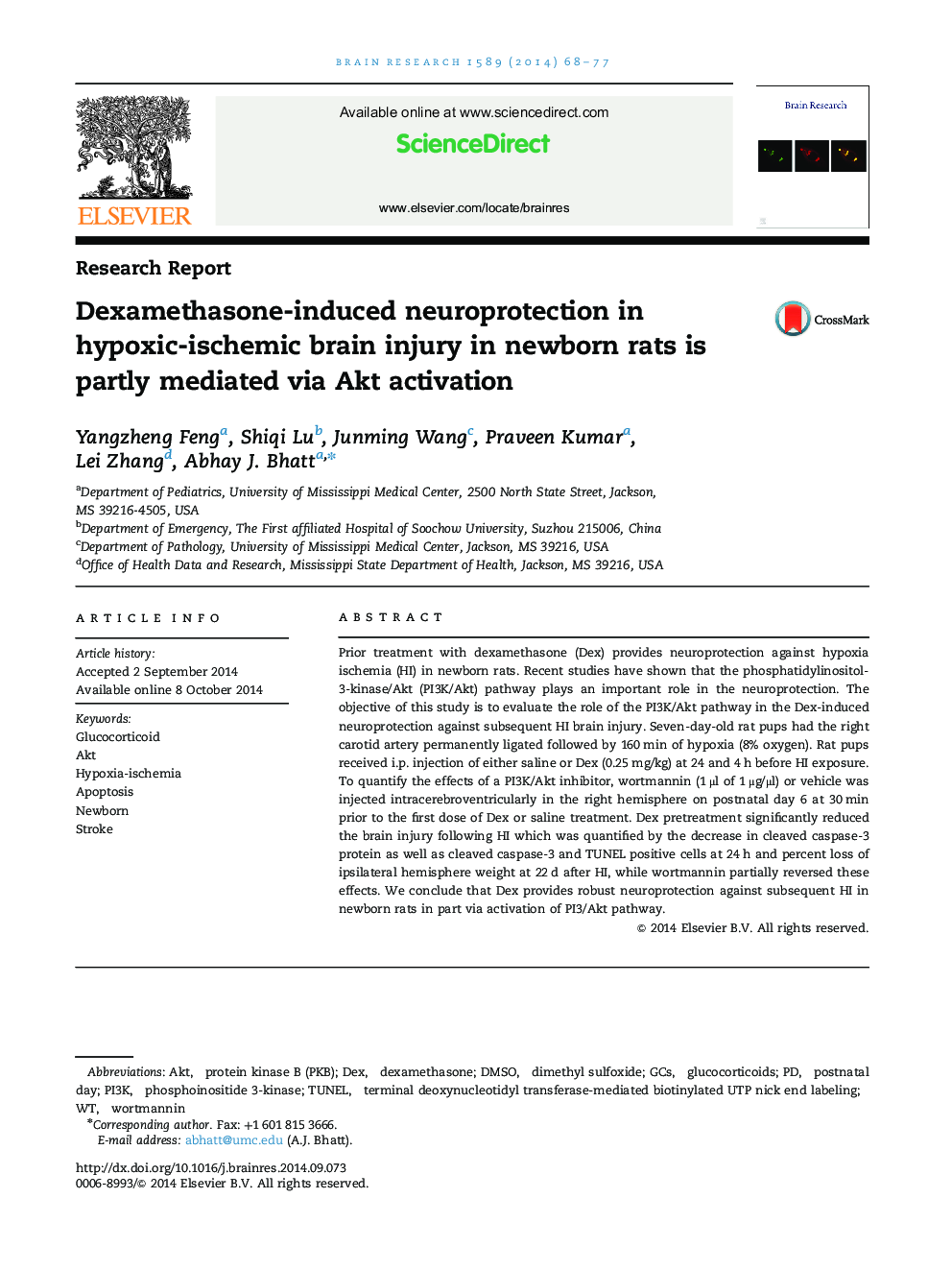| Article ID | Journal | Published Year | Pages | File Type |
|---|---|---|---|---|
| 4324057 | Brain Research | 2014 | 10 Pages |
•Dex pretreatment significantly reduced the brain injury following HI in newborn rats.•Wortmannin partially reversed these effects.•Findings suggest that neuroprotection following Dex against subsequent HI occurs in part via activation of PI3/Akt pathway.
Prior treatment with dexamethasone (Dex) provides neuroprotection against hypoxia ischemia (HI) in newborn rats. Recent studies have shown that the phosphatidylinositol-3-kinase/Akt (PI3K/Akt) pathway plays an important role in the neuroprotection. The objective of this study is to evaluate the role of the PI3K/Akt pathway in the Dex-induced neuroprotection against subsequent HI brain injury. Seven-day-old rat pups had the right carotid artery permanently ligated followed by 160 min of hypoxia (8% oxygen). Rat pups received i.p. injection of either saline or Dex (0.25 mg/kg) at 24 and 4 h before HI exposure. To quantify the effects of a PI3K/Akt inhibitor, wortmannin (1 μl of 1 μg/μl) or vehicle was injected intracerebroventricularly in the right hemisphere on postnatal day 6 at 30 min prior to the first dose of Dex or saline treatment. Dex pretreatment significantly reduced the brain injury following HI which was quantified by the decrease in cleaved caspase-3 protein as well as cleaved caspase-3 and TUNEL positive cells at 24 h and percent loss of ipsilateral hemisphere weight at 22 d after HI, while wortmannin partially reversed these effects. We conclude that Dex provides robust neuroprotection against subsequent HI in newborn rats in part via activation of PI3/Akt pathway.
